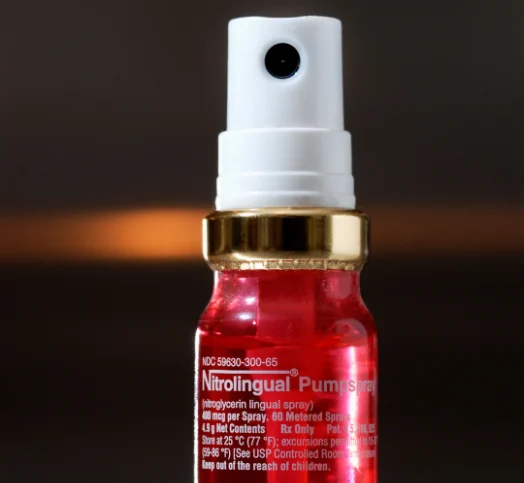Olive oil, a cornerstone of the Mediterranean diet, has long been celebrated for its numerous health benefits, particularly its positive impact on heart health. In culinary tradition and nutritional science, olive oil is a testament to the potential of nature’s offerings to enhance well-being. Beyond its appealing flavor, it’s important to underscore the valuable contributions it makes to promoting heart health.
In a world where many have shied away from fats, it’s important to remember that a balanced diet is the optimal choice. Fats are vital to our dietary needs, but the key lies in informed selection. Choosing heart-healthy fats like those found in olive oil is a wise decision contributing to overall well-being.
How does olive oil benefit heart health?
Healthy Fats Content:
Olive oil is renowned for its high content of monounsaturated and polyunsaturated fats, which are considered heart-healthy fats. These fats play a pivotal role in improving cardiovascular health. Monounsaturated fats, in particular, can help raise high-density lipoprotein (HDL) cholesterol levels, often called the “good” cholesterol. Simultaneously, they reduce low-density lipoprotein (LDL) cholesterol levels, known as the “bad” cholesterol. This balance is crucial because elevated LDL cholesterol levels are a risk factor for heart disease and stroke. By promoting a healthier lipid profile, olive oil contributes to a lower risk of these cardiovascular conditions.
Antioxidant and Polyphenol Properties:
Olive oil contains antioxidants, including vitamin E and polyphenols. These antioxidants are instrumental in reducing inflammation within the body. Chronic inflammation is recognized as a contributing factor to the development of various chronic diseases, including heart disease. By mitigating inflammation, olive oil helps protect the heart and blood vessels from damage, ultimately reducing the risk of heart disease.
Reduced Risk of Cardiovascular Events:
Numerous studies have consistently demonstrated that individuals who incorporate olive oil into their regular diet tend to experience a lower risk of heart disease and stroke. These studies suggest that the beneficial effects of olive oil are attributed to its fat composition and broader impact on cardiovascular health. Regular consumption of olive oil has been associated with improved blood vessel function, reduced blood pressure, and a lower incidence of adverse cardiovascular events.
Composition of Olive Oil
Monounsaturated Fats:
- Oleic Acid: The primary monounsaturated fat in olive oil, making up a significant portion of its fat content. Oleic acid is known for its heart-healthy properties and contributes to olive oil’s beneficial effects on cholesterol levels.
Polyunsaturated Fats:
- Omega-6 Fatty Acids: In small amounts of olive oil, these are polyunsaturated fat.
- Omega-3 Fatty Acids: Also found in minor quantities in olive oil, these are another type of polyunsaturated fat known for their potential health benefits.
Saturated Fats:
- Saturated fats are present in olive oil, but their levels are relatively low compared to other cooking oils.
Other Components:
- Antioxidants: Olive oil contains antioxidants, including vitamin E and various polyphenols, contributing to its health benefits.
- Phytosterols: Natural plant compounds that can help lower cholesterol levels.
- Phenolic Compounds contribute to olive oil’s flavor, aroma, and health benefits.
- Terpenes: Organic compounds that influence the oil’s aroma and flavor.
- Chlorophyll: The green pigment in olive oil.
- Carotenoids: Natural pigments found in varying amounts in olive oil.
- Squalene: A compound with potential health benefits, including antioxidant properties.
- Free Fatty Acids: These can affect the taste and quality of the oil, with lower levels indicating higher quality.
- Acidity Level: Measured as free fatty acid content; lower acidity levels are associated with higher-quality olive oil.
- Water Content: Typically very low in extra-virgin olive oil.
- Other Minor Constituents: Trace elements of minerals, vitamins, and other compounds that contribute to olive oil’s overall profile.
The specific composition of olive oil can vary based on factors such as the variety of olives, growing conditions, and the oil’s processing method. Extra-virgin olive oil, considered the highest quality, retains more beneficial components than other olive oil due to minimal processing. Let’s look into this a little more.
If you’re in the pro-Brussels sprouts group, try this: Steam 10-12 halved sprouts until tender. Then, toss with 15g of extra virgin olive oil, sea salt, pepper, crushed garlic, and a hint of balsamic vinegar. A simple and nutritious side for grilled chicken or as a standalone dish.
What types of olive oil are best for heart health?
Extra-Virgin Olive Oil (EVOO):
- Unparalleled Nutrient Density: Extra-virgin olive oil is the pinnacle of olive oil quality. It is made through a meticulous cold-pressing process, preserving the maximum nutritional value of the olives.
- High Healthy Fat Content: EVOO boasts the highest concentration of monounsaturated and polyunsaturated fats, the heart-healthy fats that are pivotal in improving cardiovascular health. These fats can help reduce LDL cholesterol levels in the blood, thus lowering the risk of heart disease and stroke.
- Antioxidant Richness: EVOO is a treasure trove of antioxidants, notably polyphenols and vitamin E. These antioxidants work in synergy to combat oxidative stress and inflammation, key contributors to heart disease.
- Flavorful and Versatile: EVOO is nutritious and adds a delightful flavor to dishes. It’s the perfect choice for drizzling over salads, vegetables, or grains, enhancing their taste while providing a heart-healthy boost.
Regular Olive Oil:
- A Blend of Refined and Virgin Oils: Regular olive oil, also known as “pure” olive oil, is a blend of refined olive oil and virgin or extra-virgin olive oil. The refining process involves filtering and heating, which can remove some of the natural flavors and nutrients found in virgin oils.
- Milder Flavor: Compared to EVOO, regular olive oil has a milder flavor and is less robust. This can make it a suitable option for cooking when you want to avoid overpowering the dish with olive oil’s characteristic taste.
- Nutrition: While regular olive oil is still a source of heart-healthy monounsaturated fats, it has a lower concentration of antioxidants and other beneficial compounds than extra-virgin olive oil. Therefore, regarding overall nutritional value, EVOO remains the superior choice for heart health.

A spray bottle for olive oil – a helpful tool for portion control. While olive oil offers nutrients and health benefits, it is also calorie-dense. Using a spray bottle allows for precise application, promoting moderation and mindful consumption to strike the right balance between flavor and calorie intake.
Calorie-Conscious Olive Oil Usage
Calorie Consideration: Olive oil contains approximately 120 calories per tablespoon. While the fats in olive oil are heart-healthy, these calories can add up quickly, mainly if used liberally in cooking or as a dressing. Therefore, moderation is essential when incorporating olive oil into your diet.
Balancing Act: To reap the health advantages of olive oil without overloading on calories, it’s advisable to strike a balance. Be mindful of portion sizes and use them judiciously in your culinary preparations. For example, you can measure your olive oil when drizzling it over salads or vegetables to control your calorie intake, or better still, why not invest in a simple kitchen scale to track your dietary intake better?
Part of a Balanced Diet: Olive oil should be considered an integral component of a well-rounded diet rather than a standalone solution. Pair it with other nutrient-rich foods, such as whole grains, vegetables, and lean proteins, to create balanced and satisfying meals supporting overall health.
Healthy Lifestyle: Ultimately, maintaining a healthy lifestyle involves choosing the right foods and monitoring portion sizes and overall calorie consumption. Regular physical activity also plays a vital role in achieving and maintaining a healthy weight. Check out our article here for an overview of lifestyle and diet relevant to heart health.
Conclusion
In conclusion, olive oil is a healthy addition to a heart-healthy diet. It is high in healthy fats and antioxidants, which can help lower LDL cholesterol levels and reduce inflammation. When used in moderation, olive oil can be a valuable part of a healthy lifestyle, aligning well with the principles of the Mediterranean diet known for its holistic approach to health. Remember, olive oil is most effective in a broad and balanced diet, making it an important component of a well-rounded, heart-protective lifestyle.









